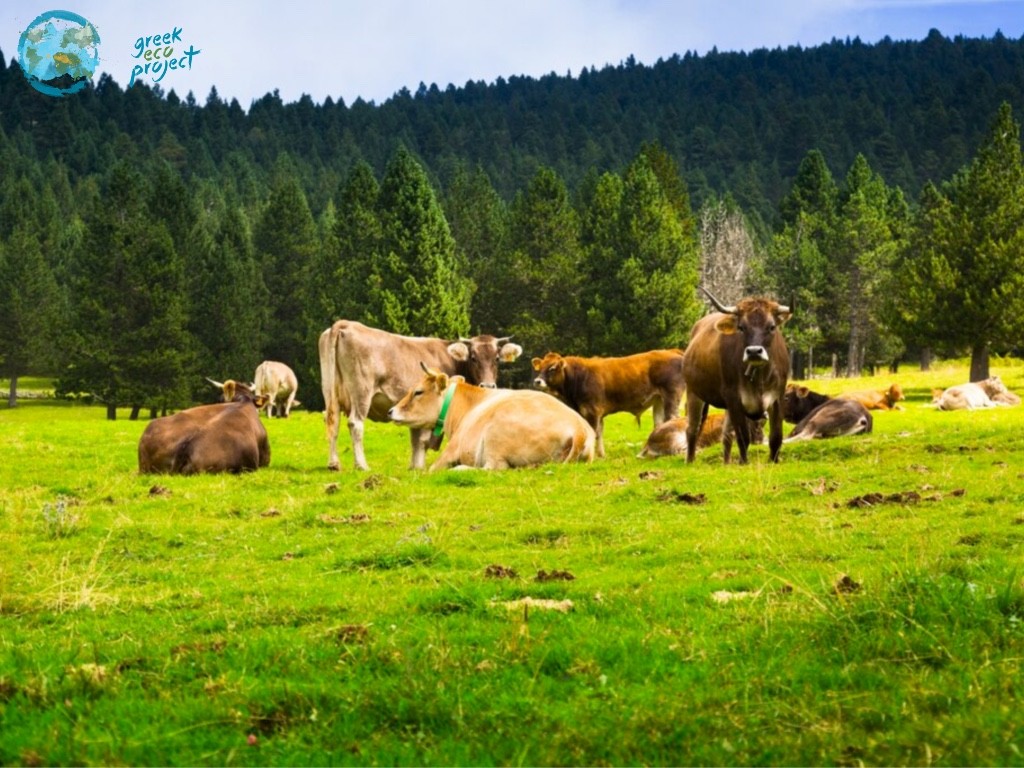
Meat consumption and its impact on the environment

It is a fact that our planet will not be able to feed its ever-growing population and its 'modern' requirements in a few years' time if we continue with the same eating habits.
With the unbridled growth of mega-livestock farming, the overconsumption of meat is the No. 1 cause of climate change. As global demand for meat and dairy products increases rapidly, the greater the pressure on arable land and resources for feed production.
In particular, the rearing of cattle for meat and milk production has by far the greatest environmental impact, while poultry farming for meat and egg production has less environmental impact.
The direct link between modern diets and the environmental crisis makes us wonder about the 'bad' habits we need to change in our daily lives.
The livestock and dairy industries use vast areas of land, energy and water to maintain and produce their products.

The impact on the environment is huge in terms of water consumption. In the US, livestock and livestock-related agricultural activities are responsible for 80-90% of total water consumption. This is reasonable when you consider that it takes about 9 thousand litres of water to produce half a kilo of beef and 1,000 litres of water for every litre of milk.

The impact of industrial livestock farming on forest destruction is also very high, as 2 to 5 hectares of land are used for each cow. This results in an ever-increasing need to create new land. Thus, every day hundreds of species of plants, animals and insects are disappearing due to the destruction of rainforests and already millions of acres of rainforests have been flattened to become pastures for livestock. The most striking example is the Amazon, where this industrial-style livestock farming is responsible for 91% of its destruction.

The global livestock industry is responsible for about 14% of man-made greenhouse gas emissions, and contributes 40% more to global warming than all the world's transport combined. Remarkably, America produces as much gas from domestic animals as it does from oil emissions.
Let's change our eating habits
Switching to a more vegan diet and reducing meat consumption could contribute to the sustainability of the planet. By reducing or eliminating meat and dairy consumption from our diets, the environmental footprint we leave is reduced at the same time Μειώνοντας ή αποκλείοντας την κατανάλωση κρέατος και γαλακτοκομικών προϊόντων από τη διατροφή μας, μειώνεται ταυτόχρονα και το περιβαλλοντικό αποτύπωμα που αφήνουμε.

· - Establish at least one meat-free day of the week, for example 'Meatless Monday', where you will have time to plan your meals from the weekend.
· - Limit your red meat consumption. Replace red meat with chicken or a plant-based substitute such as mushrooms or tofu, which are rich in protein.
· - Replace your dairy products with soy or nut milk.
· - Experiment with new recipes and combinations with nuts, seeds and legumes.
· - Consult a nutritionist if you find this change too difficult but want to try it.
In any case, knowing the origin of the food that reaches our table and the conditions under which it was raised is very important. Let us pay proper attention and appreciate more all the goods that the earth provides us with.

